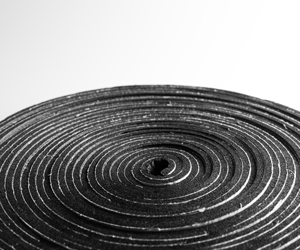Description
Polyethylene foam or PE foam is a rigid closed-cell foam with good strength and resilience. Made from polyethylene or polythene, this lightweight and affordable foam is suitable for industrial and commercial applications such as:
- Shock absorption
- Packaging
- Thermal insulation, e.g. pipe insulation
- Acoustic soundproofing
- Kneeling pads
- Buoyancy Aids
- Plain or adhesive backed – adhesive backing is a high shear acrylic scrim adhesive
- Lightweight: polyethylene foam adds minimal weight as it has a low density, provided by many tiny air pockets
- Closed cell structure: each air pocket is closed, creating a water-resistant and impermeable surface even when cut to size. This makes PE foam excellent for creating watertight and air-tight seals and gaskets.
- High Compression Set Resistance: the material remains resilient under repeated impacts, returning quickly to its original shape. This property makes PE foam an excellent shock absorber for machinery and packaging material to protect delicate items during shipping.
- Strong and Durable: Polyethylene foam does not degrade easily under abrasion or compression, offering a long-lasting material for industrial use.
- Chemical and Oil resistance: polyethylene does not corrode when in contact with solvents, or aqueous solutions of salts, acids and alkalis.
- Thermal Insulation: polyethylene foam has a thermal conductivity as low as 0.3 w/mk, thanks to the many air pockets per cm3
- UV Ozone & Weather Resistance: this excellent resistance makes PE foam well-suited to outdoor applications
- Water resistance: polyethylene foam is waterproof and does not absorb fluids.
- Low permeability: because of its closed cell structure, PE foam cannot be permeated by water or other fluids.
- Flexible but rigid: while this foam can be bent and manipulated, it will hold its shape without flopping or sagging.





